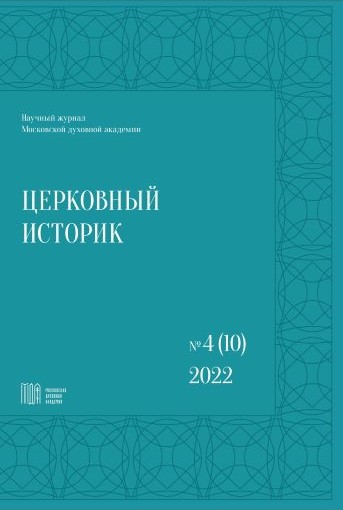Patriotic demonstrations during the First Russian Revolution
DOI:
https://doi.org/10.31802/CH.2022.10.4.009Keywords:
patriotic demonstrations, the First Russian Revolution, the Black Hundred movement, traditionalism, the Church during the First Russian Revolution, January 9, 1905, right-wing parties, telegrams to the tsarAbstract
The article is devoted to the study of patriotic manifestations amongst the population of the Russian Empire during the First Russian Revolution. Based on the materials of periodical publications, official appeals and memoirs, the aspects of the organization, content, historical background and perception of various patriotic actions during the revolution are studied. The main forms of popular demonstrations in support of the existing system were marches of a religious nature, resembling Church processions, and appeals to representatives of the highest state and church authorities with expressions of a loyal nature. In their ideological content, the demonstrations reflected the point of view of extreme right-wing political organizations in their view of the role of the monarchy in Russia, as well as characterizing the «enemies» of the country. At the same time, the patriotic demonstrations reflected a traditional view of the relationship between the government and the people. Ecclesiasticism was an important part of the traditional worldview of the country's population, and during the formation of right-wing parties it became one of the foundations of their programs. Therefore, the ecclesiastical element in patriotic demonstrations not only persisted, but also increased quantitatively. Regarding the effectiveness of such actions in the information sphere, based on some facts and observations of other researchers, an assumption is put forward about the effectiveness of the manifestations and the known potential of calming popular unrest.
Downloads
References
Источники
Голос народа // Почаевский листок. 1905. № 14. С. 112.
Голос народа // Почаевский листок. 1905. № 2. С. 13.
Гуревич Л. Я. Народное движение в Петербурге 9-го января 1905 г. Берлин: изд-во Гуго Штейна, 1906.
М. В. Народная молитва. 1905. № 25. 19 июня. Неофициальный отдел. С. 273–274.
Милостивые слова Государя Императора рабочим // Донские епархиальные ведомости. 1905. № 5. 11 февраля. Официальный отдел. С. 89–91.
Милюков П. Н. Воспоминания. М.: Политиздат, 1991.
Молебствие в Холме // Прибавления к Церковным ведомостям. 1905. № 14. С. 611–612.
Начало первой русской революции: Январь — март 1905 года / под ред. Н. С. Трусовой. М.: издательство Академии наук СССР, 1955.
Определение Святейшего Синода от 28 января 1905 года по поводу милостивых слов Государя Императора к депутации рабочих // Церковный вестник. 1905. № 5. 29 января. С. 42.
Послание Святейшего Синода от 14 января 1905 года // Кормчий. 1905. № 5. 29 января. С. 50–52.
Правительственное сообщение // Известия по Харьковской епархии. 1905. Кн. 2. 31 января. С. 88–89.
Речь императора к депутации рабочих. Прекращение начавшегося движения // Церковный вестник. 1905. № 4. С. 119–123.
Самый дорогой дар Царю // Прибавления к Почаевскому листку за 1905 год. 1905. № 50. С. 385–386.
Телеграмма Государю Императору крестьян местечка Почаева и Почаевской Юридики // Прибавления к Почаевскому листку за 1905 год. № 50. С. 390.
Царское слово петербургским рабочим // Православный собеседник. 1905. Часть 2. Февраль. С. 319–320.
Литература
Алексинский А. Иваново-Вознесенская самодержавно-монархическая партия // Черная сотня. Историческая энциклопедия 1900–1917. М.: Крафт+, Институт русской цивилизации, 2008. С. 219.
Омельянчук И. В. Черносотенное движение в Российской империи (1901–1914). Киев: МАУП, 2007.
Павлов С. Б. Опыт первой революции: Россия. 1900–1917. М.: Академический проспект, 2008.
Степанов С. А. Черная сотня. Что они сделали для величия России. М.: Яуза-пресс, 2013.
Шацилло К. Ф. 1905 год (Страницы истории нашей Родины). М.: Наука, 1980.
Downloads
Published
How to Cite
Issue
Section
Categories
License

This work is licensed under a Creative Commons Attribution-ShareAlike 4.0 International License.







